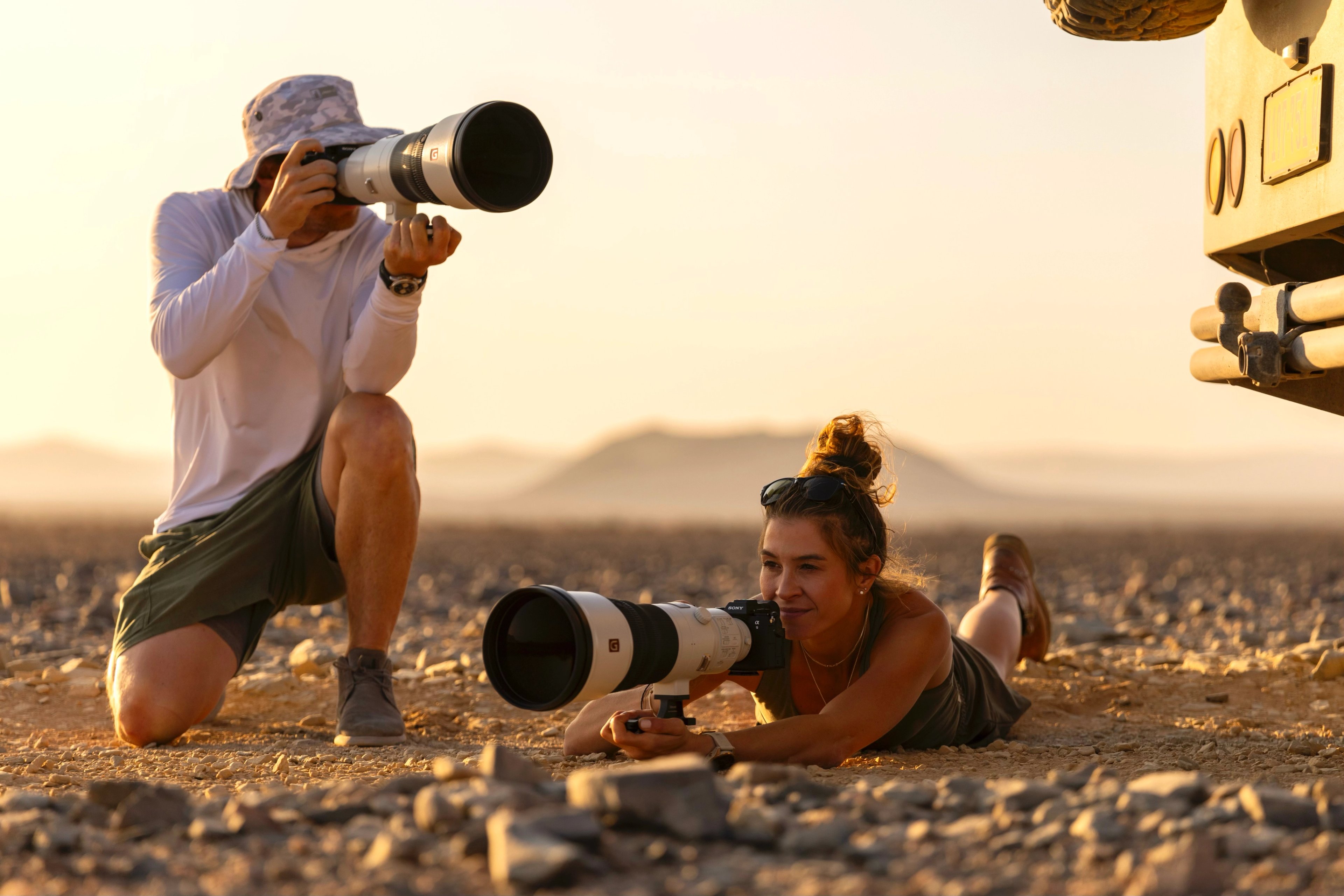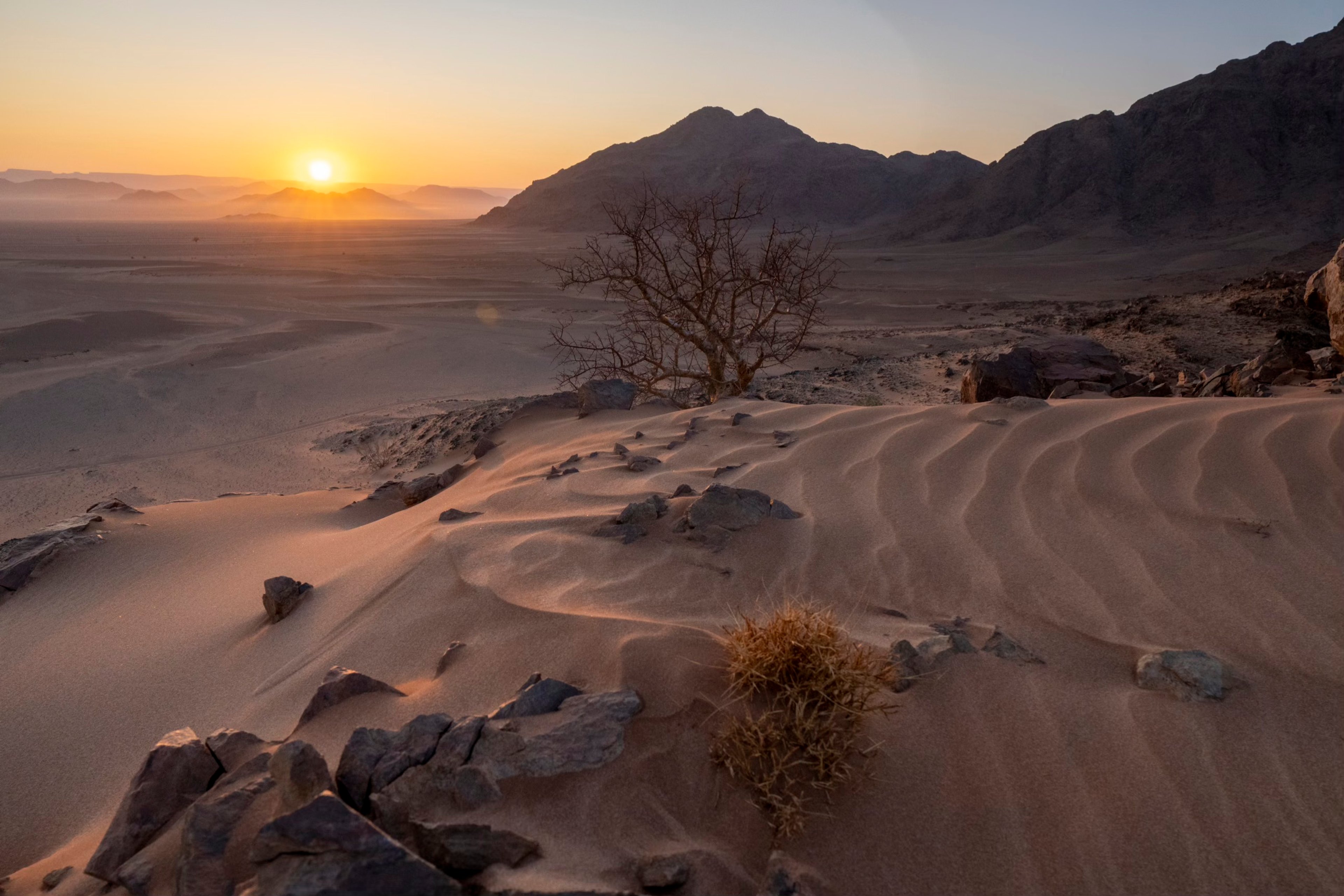Working on the continent of my birth – a place revered for its epic natural scenery and ultra-luxe safari destinations – I’m used to feeling somewhat overwhelmed every time I put a foot on African soil. And every so often an experience or a property will come along to remind me that even I haven’t seen it all just yet – Ol Jogi Wildlife Conservancy in Kenya’s Laikipia Region is such a place. I can honestly say that the few days I spent there count amongst my most inspiring ever and still have me digesting all I took in.
Set on 58 000 acres of pristine wilderness and nestled into a lush, rocky outcrop, Ol Jogi is one of the most remarkable reserves in Kenya. A safe haven for the preservation and future development of wildlife conservation, it’s also a spectacular family home that has been in the custodianship of the Wildenstein family for more than 50 years, and one that perfectly encapsulates all the travel values that we at ROAR AFRICA aim to champion.
A haven for wildlife
Today it’s run by Alec Wildenstein, who made his first trip to Ol Jogi when he was six months old and took over its management after his father died almost 15 years ago. In that time, Alec has honed his passion and love for conservation, making sure these values inform every aspect of this nature-inspired property. To the extent that every dollar earned through hosting guests is ploughed straight back into its considerable conservation efforts – which range from animal rescue and rehabilitation to anti-poaching protection, community outreach programs and education.
It’s almost as if the wildlife senses this, for the lodge itself is a meeting point for hippo, giraffe, zebra, buffalo, impala, gazelle, wildebeest, black rhino and a plethora of bird species – sometimes all at once. The main homestead feels just as wild too: Ol Jogi could easily pass for a James Bond movie set with its Baccarat chandeliers, Hermès linen, Buccellati silver and the staggering variety of jungle prints, shag rugs, period and antique furniture and incredible artworks. The main house and freestanding cottages are over the top in the best possible way with an exquisite attention to detail executed during Alec’s parents’ time there.
A culinary adventure
Whether you choose to start your morning from the comfort of your bed watching a spectacular East African sunrise while a giraffe peers through your window, or exploring the open veld on horseback, you’ll be struck by the beauty and majesty of what one family has managed to create and protect. And there are surprises aplenty too, like ‘the pool of all pools’, designed to fit into its nature-inspired habitat along with a cascading waterfall. Or the underground tunnel that leads from the bar to the perfect viewing hide right on the watering hole, where I found myself practically face to face with a black rhino as it occupied itself at the salt lick.
While Ol Jogi is known for its homestead, history and impeccable service, its cordon bleu chef Jamie Sparks adds an unforgettable culinary layer to that experience. ‘When guests come to Ol Jogi, the menu is created specifically for them, based on their preferences,’ she explains. ‘My goal with this team is to get to a point where even the most challenging of preferences is no longer intimidating, but an opportunity to think outside of the box.’ As someone who follows a gluten- and sugar-free diet, I can attest to the enormous variety of dishes on offer at Ol Jogi that were all perfectly delicious, fresh and organic. ‘Expanding the vegetable garden is high on my list,’ says Jamie. ‘Hopefully, I will be able to push that further and build aging and drying rooms so as to create a specialty line of high-end Ol Jogi cured meats and cheeses on the property.’ I was generously gifted Jamie's first cookbook, Cooking for Conservation, Tchad: A gastronomic safari, and with another cookbook in the pipeline for Jamie, I’m looking forward to what will be served on custom crockery next time I’m at Ol Jogi.
Each meal is an experience and a surprise – ranging from a Mongolian BBQ lunch on top of a hill, to dinner on a river island – served with different glassware and plates each time. And the subterranean wine cellar has to be seen to be believed. It is a space reminiscent of the catacombs of France, complete with a 150-year-old wine press and a collection of magnums of Chateau Lafite Rothschild 1989 and the owner’s personal collection of Calvados 1898!
Conservation that connects
But what really stayed with me long after I’d left was the feeling that this was a place where conservation has moved beyond the cerebral and philanthropic to something visceral and connected. My conversations with conservation manager Jamie Gaymer were fascinating, in that his passion for conservation informs Ol Jogi’s mission to become a leading model for private conservation.
Considering the current impoverished state of much of Africa, and the continent’s conservation crisis post Covid-19; and then taking into account that Africa’s human population is expected to triple by 2050 (according to the World Economic Forum), Jamie’s belief that we need to move away from philanthropic gifting to community partnership models makes so much sense. For as the insatiable and exponentially growing demand for natural resources becomes an ever-overwhelming threat, Jamie’s assertion that we’ll have to get strategic around what we will save is the kind of bold truth we all need to hear.
‘No matter what we do, we cannot conserve it all but we can – wherever possible – maintain connectivity, contiguous landscapes and seek a solution where communities and wildlife can co-exist for their mutual benefit.’ To that end, Ol Jogi has developed a multi-faceted approach to conservation, one that encompasses preserving critically endangered species and providing them with the best medical support possible, restoring degraded natural habitats, providing a much-needed education platform to share the importance of this work, and collaborating with neighboring communities so that they can perceive a direct benefit from wildlife and natural landscapes. It’s a place that has left its mark upon me, and one to which I can’t wait to return.




